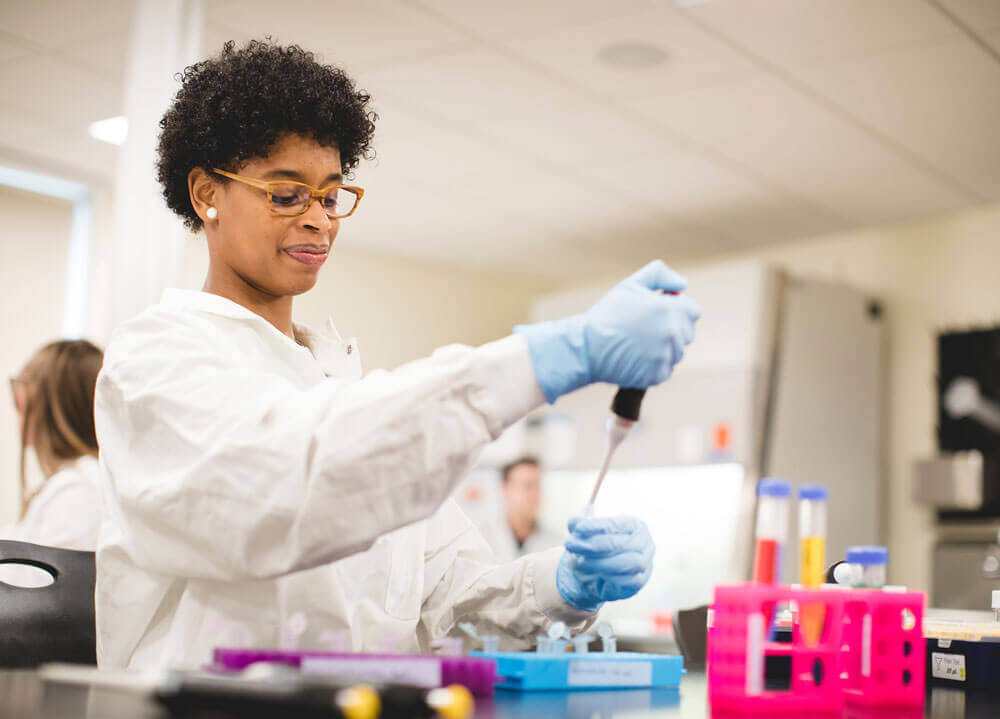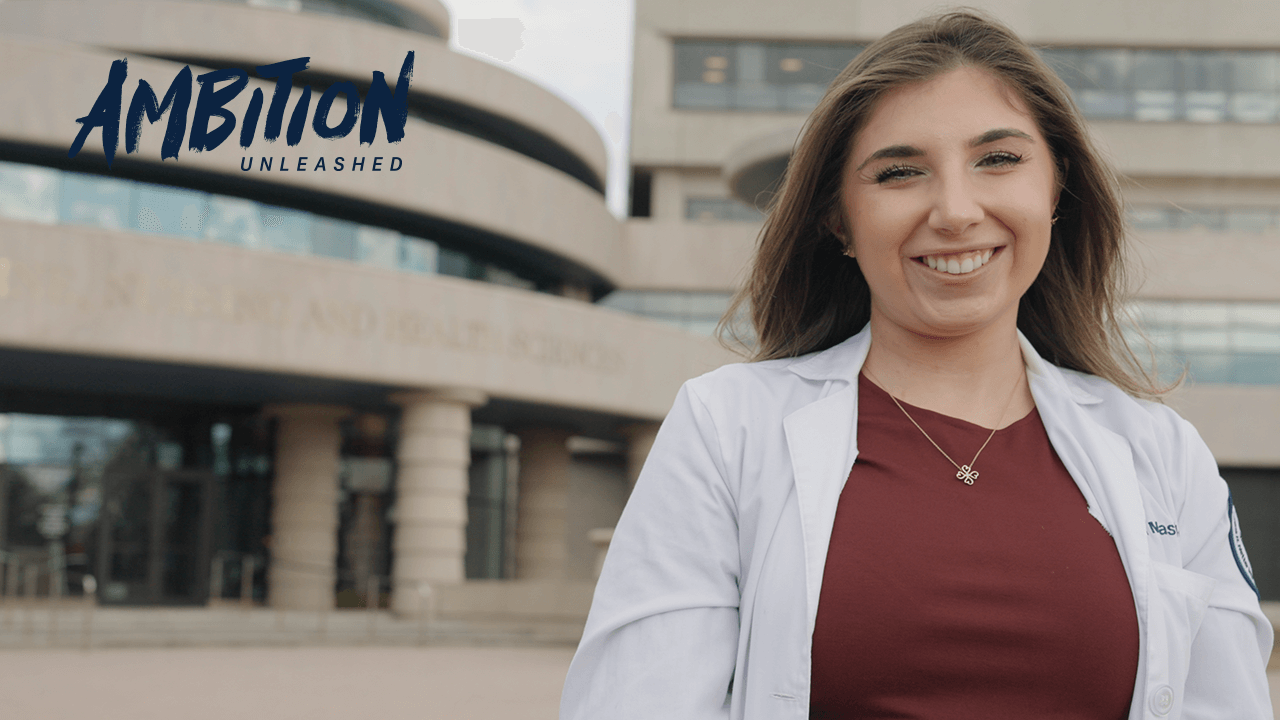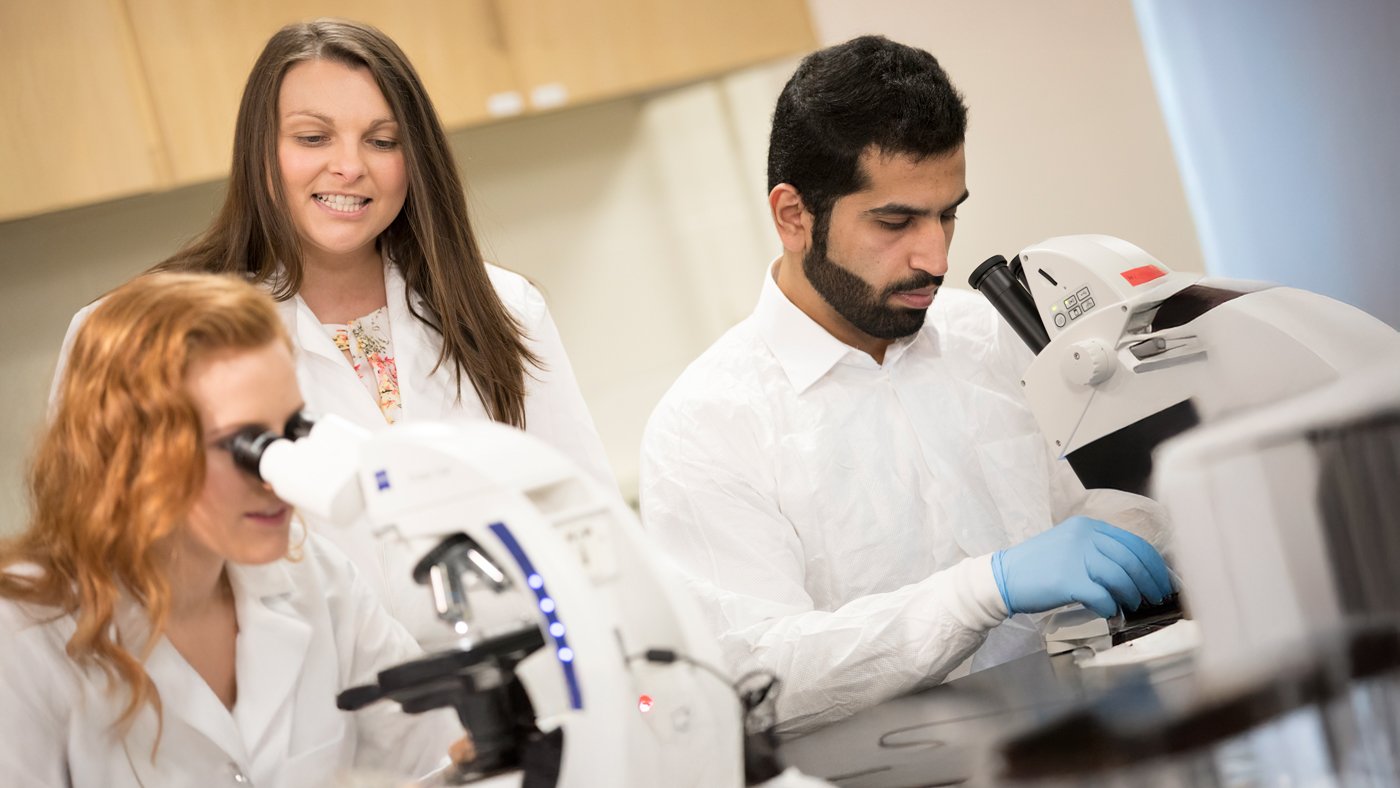
A foundation in the basic and medical sciences can lead to discovering groundbreaking treatments as a research scientist or delivering those treatments to patients as a physician.


A foundation in the basic and medical sciences can lead to discovering groundbreaking treatments as a research scientist or delivering those treatments to patients as a physician.

The BS in Biomedical Sciences program focuses on human health and disease with a strong emphasis on translational research. You’ll learn how to turn basic scientific findings into new, groundbreaking therapies, and conduct experiments that can help reveal the cure to devastating diseases. The research acumen and lab skills you’ll acquire are as necessary in hospital laboratories as they are at pharmaceutical and life sciences companies.
Many students participate in faculty-mentored research, either during the semester as part of an independent study, or over the summer as part of the Quinnipiac Interdisciplinary Program for Research and Scholarship (QUIP-RS). Students also may have an opportunity to present their findings at regional and national meetings of organizations such as the American College of Sports Medicine, American Society of Microbiology, Society of Neuroscience and many others. Additional hands-on experience can be gained through an internship with a local biotechnology company or health facility.
Our curriculum builds industry-specific knowledge and critical thinking skills while giving you the flexibility to customize your schedule based on your needs. In addition to courses in science and mathematics, students will take a selection of classes designed to provide a strong program in basic and biomedical sciences. You'll graduate as a well-developed medical and laboratory professional who is prepared to meet the present trials and anticipate the future challenges in human health and disease.

In addition to careers in research/lab work at hospitals, industry and government facilities, many of our students have gone on to earn advanced degrees in such science disciplines as microbiology, immunology and biochemistry. A number of students continue their education by taking advantage of Quinnipiac‘s Master of Health Science in Biomedical Sciences program.
Thanks to our flexible curriculum, students especially interested in careers in the health professions can explore the clinical side of medicine while meeting the requirements for our pre-medical studies designation.
With an abundance of career-focused information and resources, the career advisers within the School of Health Sciences support students as they expand their professional networks and attract the attention of prestigious employers.

Professor Martine Mirrione brings the experience of a research institution to Quinnipiac — with her focus on neuroscience, pharmacology, neuroimaging and behavior. She is currently examining the link between neuronal circuits and depression symptoms, and the effectiveness of deep brain stimulation therapy for treating depression in individuals. Mirrione’s research has been published in national journals, including Nature, The Journal of Neuroscience and Synapse. She regularly speaks at conferences and has received many scholarships and awards for her work, including one from the National Science Foundation.
For Mirrione, an associate professor of biomedical sciences, the lab is not a solitary place for individual pursuits, but one where she expands her role as an educator. She is most inspired — personally and professionally — when mentoring undergraduates on their own research projects, or guiding graduate students through their thesis projects.
Mirrione frequently uses visuals to aid in the learning of important principles and concepts. She also believes in connecting ideas through hands-on experiments, which in turn exposes her students to emerging technology and techniques in the process.
“Technology and research methods are constantly changing,” she said. “It is important that our students are not intimidated by that change.”
The Department of Homeland Security has determined that this program meets the requirements for STEM designation.
STEM (science, technology, engineering and math) graduates are in high demand. According to the Bureau of Labor Statistics, there will be over 1.12 million jobs in STEM occupations in the next 10 years. The Department of Defense also estimates that more than 80% of jobs will require STEM skills over the next decade.
In addition, STEM-designated programs allow certain international graduates to remain and work in the United States for an additional 24 months after graduation on top of the standard Optional Practical Training period (up to 12 months) in order to receive additional training through their work experience.
Our undergraduate admissions counselors are here to answer any questions you may have and help you navigate the application process.